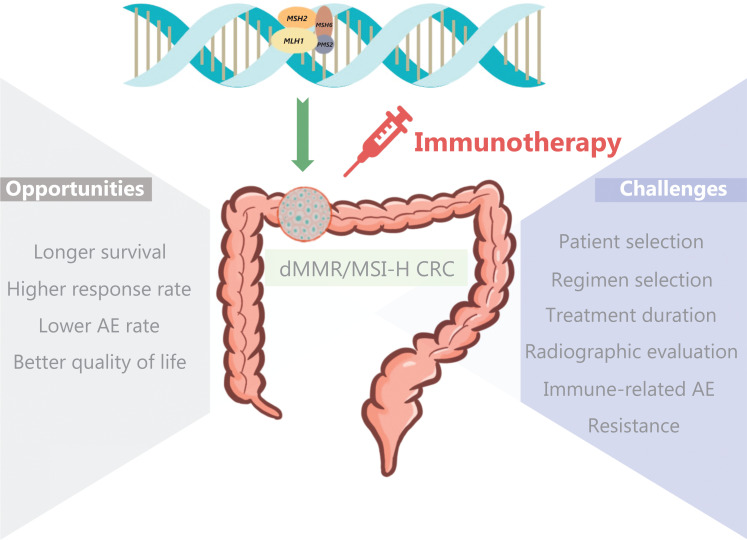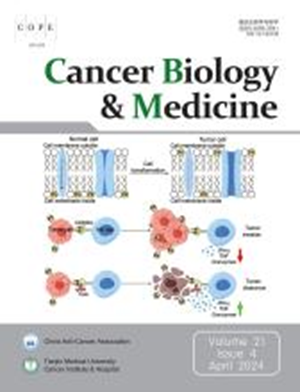Opportunities and challenges of immunotherapy for dMMR/MSI-H colorectal cancer.
IF 5.6
2区 医学
Q1 MEDICINE, RESEARCH & EXPERIMENTAL
引用次数: 0
Abstract
Colorectal cancer (CRC) with mismatch-repair deficiency (dMMR) is a distinct molecular subgroup of tumors that is characterized by a diminished capacity to correct base-pair mismatches in DNA, which leads to changes in microsatellite sequences and results in high microsatellite instability (MSI-H) accompanied by hypermutation 1 . The incidence of dMMR/ MSI-H in patients with CRC has been reported to be 15% (12% with sporadic disease and 3% with Lynch syndrome). The incidence varies by stage, with 20% in stage II, 10%–15% in stage III, and 3%–5% in stage IV 2 . Despite the presence of numerous neoantigens that promote tumor-infiltrating lymphocytes in the microenvironment, dMMR/MSI-H CRC also exhibits significantly increased expression of immune checkpoints, such as PD-1 and CTLA-4 3 . Immune checkpoint inhibitor (ICI) therapy has been shown to have high sensitivity for dMMR/MSI-H metastatic CRC (mCRC). Additionally, promising results have been obtained in several trials involving locally advanced dMMR/MSI-H CRC. As the search of ICIs for dMMR/MSI-H CRC treatment continues, clinical practice faces numerous opportunities and challenges ( Figure 1 ).

dMMR/MSI-H结直肠癌免疫治疗的机遇和挑战。
本文章由计算机程序翻译,如有差异,请以英文原文为准。
求助全文
约1分钟内获得全文
求助全文
来源期刊

Cancer Biology & Medicine
Medicine-Oncology
CiteScore
9.80
自引率
3.60%
发文量
1143
审稿时长
12 weeks
期刊介绍:
Cancer Biology & Medicine (ISSN 2095-3941) is a peer-reviewed open-access journal of Chinese Anti-cancer Association (CACA), which is the leading professional society of oncology in China. The journal quarterly provides innovative and significant information on biological basis of cancer, cancer microenvironment, translational cancer research, and all aspects of clinical cancer research. The journal also publishes significant perspectives on indigenous cancer types in China.
 求助内容:
求助内容: 应助结果提醒方式:
应助结果提醒方式:


